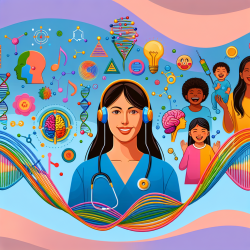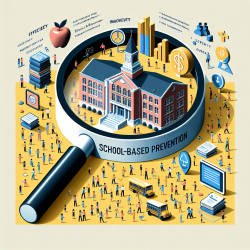Introduction
In today's digital age, social media is an integral part of the daily lives of children, adolescents, and young adults. The research article titled A scoping review of social media in child, adolescents and young adults: research findings in depression, anxiety and other clinical challenges provides a comprehensive overview of the impact of social media on mental health. This blog post will explore how practitioners can utilize these findings to improve therapeutic outcomes for young clients.
Key Findings from the Research
The scoping review analyzed studies from 2000 to 2020, focusing on the relationship between social media use and mental health conditions such as depression and anxiety in individuals under 25 years. Here are some critical insights:
- Shorter social media use (<3 hours/day) with purposeful engagement is linked to better psychological well-being.
- Longer social media use predicts depression and anxiety, particularly with passive browsing.
- Social media can both positively and negatively affect mental health, depending on the type of interaction and user engagement.
- Girls are more likely to experience negative effects related to social media use compared to boys.
Implications for Practitioners
These findings offer valuable insights for practitioners working with children and adolescents. Here are some practical applications:
- Assessment and Monitoring: Use the data to assess clients' social media habits and their impact on mental health. Encourage clients to reflect on their social media use and its effects on their mood and relationships.
- Promoting Healthy Use: Guide clients to limit social media use to under three hours per day and encourage active, purposeful engagement rather than passive browsing.
- Parental Involvement: Educate parents on the importance of monitoring and setting boundaries for social media use to foster a supportive environment.
- Addressing Gender Differences: Be mindful of the gender-specific impacts of social media and tailor interventions accordingly.
Encouraging Further Research
While the review provides a comprehensive overview, it also highlights gaps in current research, such as the need for more longitudinal studies and diverse population samples. Practitioners are encouraged to contribute to this evolving field by engaging in research or collaborating with academic institutions to explore these areas further.
Conclusion
By integrating the insights from this research into practice, therapists can enhance their approach to treating children and adolescents affected by social media-related mental health challenges. This data-driven approach not only improves therapeutic outcomes but also empowers young clients to navigate the digital world more effectively.
To read the original research paper, please follow this link: A scoping review of social media in child, adolescents and young adults: research findings in depression, anxiety and other clinical challenges.










